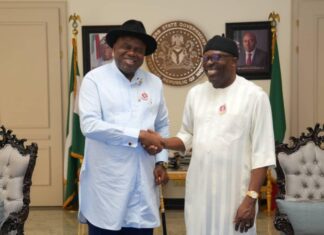Botswana has to work aggressively to be a successful open economy by following the examples of Singapore and Mauritius.
By Ade Adefeko

Botswana, a small South African nation of about 2.3 million people, got its independence from Britain on September 30, 1966.
The above implies that Botswana got its independence from its colonial masters six years after Nigeria, the most populous black nation on earth, got it from the same imperial lords in 1960.
By some coincidence, both countries – one in the south of Africa and the other in the west of the same continent – always celebrate their Independence Day within a day’s interval – September 30 and October 1.
While Botswana turned 57 on September 30, Nigeria turned 62 on October 1. In both countries, the celebrations were a bag of assorted concerns and opinions as expected from their disparate and distinct citizens.
I am a Nigerian by birth and by immersion. And that will stay forever. I am also an African, which presupposes that I share a common destiny and ancestry with Botswana and its great and dynamic people. But beyond that, I also have an affiliation with the southern African nation because I serve as its first and current Honorary Consul to Nigeria!
For the benefit of my Nigerian readers who may not be aware of this, Botswana became a British Protectorate in 1885 under the name Bechuanaland. It became a republic in 1966 after it gained its independence and then changed its name to Botswana.
Thanks to stable and transformative leadership over the years, the country that was one of the poorest in terms of Gross Domestic Product (GDP) in the late 1960s, has since transformed into an upper-middle-income country, with one of the fastest growing economies in the African continent. As of 2021, by some accounts, the country had a GDP per capita of about $18,113, which was one of the highest in Africa. Arguably the fifth largest in terms of GDP on the continent!
Though landlocked and highly sparsely populated – 2.3 million people – one of the highest in the world, the country has managed to survive these natural disadvantages to become the wealthiest and most stable country in Southern Africa. With a natural disadvantage of being landlocked, it can only take thinking outside the box and honest leadership to arrive at where the country is today in terms of economic growth and development.
The Botswana economy stands essentially on the tripod – mining, cattle farming and tourism – but the wealth of the country is tied principally to diamond extraction. The country is the highest producer of diamond in the world which confers a huge advantage on her given the wealth associated with the mineral of value. The country’s relatively high gross national income per capita gives her a relatively high standard of living and the highest Human Development Index in continental sub-Saharan Africa.
Just like Nigeria, whose economic livewire has been crude oil for decades, Botswana also runs a monolithic economy – diamond being the chief driver and mainstay. The implication of this over-reliance on a mono-product as the major generator of a nation’s wealth is that whatever affects the price of the commodity in the global market will automatically affect the revenue of such a country that trades in it. Nigeria is a typical example in this regard. Whatever affects the global oil market affects Nigeria significantly. Ditto for Botswana whose economic destiny is tied to diamond.
READ ALSO: FG says no kobo paid to rescue 23 Abuja-Kaduna train passengers
Karl Toriola: Leading from the front
As experts have argued and continue to argue, no country can truly become prosperous by relying on one economic product. Organic and sustainable wealth comes from multiple sources of income. As it’s to household economies, so it is with countries. The US, China, Russia, Japan, South Korea and the rest are prosperous today because of their multiple comparative advantages.
Should anything go wrong with the mono-product that gives the country its superior comparative advantage, economic disaster may be inevitable. To halt such an ugly comeuppance from befalling the Botswana economy, there’s an urgent need for the leadership of the country to inject more energy and seriousness into its economic diversification policies.
First off, to energize the economic diversification policy of the government, there’s the need for the leadership of the country to open it up to break the pervading barrier of insularity associated with the country which has impacted negatively on its economic growth and development over the years.
It is elementary that with diverse investments coming into the country, there will be more job openings in the private sector beyond public sector jobs which are not enough to cater for the employment needs of the youth. This is aside from the fact that such foreign investments will also impact positively on the GDP of the country and the per capita income of its citizens who will be gainfully employed.
One profound way the Botswana government can turn the insular economy into an open one is by providing incentives to attract foreign investments, which are severely limited in the country. Incentives like introducing a visa-on-arrival policy, strengthening the country’s ease of doing business policy, and emplacing friendly and competitive taxes, among other growth-inducing variables. One can only imagine how many tourists will want to savour the beautiful safaris in the country every year if tourist visa procurement is made more relaxed and easy to get.
The government also needs to rejig its protectionist labour law which discourages foreign investors from investing in the country’s vast economic potential. As Keith Jefferis argued, Botswana has to work aggressively to be a successful open economy by following the examples of Singapore and Mauritius.
It has to be said though that despite the insularity associated with the country, it is a true African success story taking into cognizance the appreciable economic progress and political stability the country has had over the years. But more still needs to be done as mentioned in this intervention because of the increasing globalisation of all the economies of the world. No country can survive perpetually in isolation. Something is bound to give way.
- Ade Adefeko, a public communicator, wrote in from Lagos















